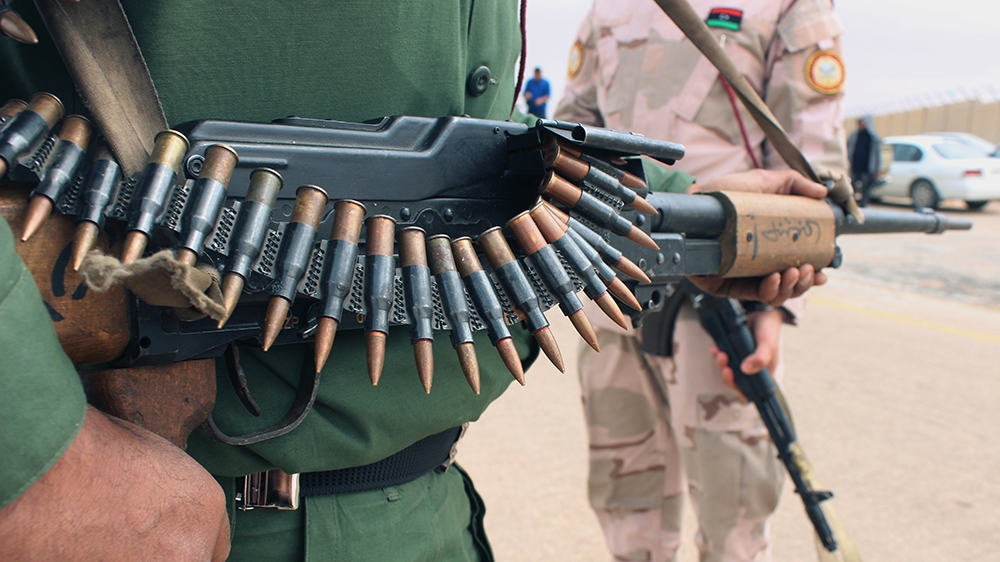Eastern-based forces allied with renegade Libyan military commander Khalifa Haftar have sent thousands of foreign mercenaries to fight in a looming battle for the strategic city of Sirte.
Local sources from the city of Kufra, in southeastern Libya, told Al Jazeera that numerous convoys of foreign fighters on Sunday passed through the city Ajdabiya, which is located between Benghazi and Sirte.
Haftar-allied forces released a video showing military reinforcements being deployed from Benghazi, where the eastern forces are based, towards Sirte, 570km (354 miles) to the west.
|
|
The reinforcements included Sudanese and Chadian fighters, as well as more than 3,000 Russian mercenaries, sources said.
The UN-recognised Government of National Accord (GNA), led by Prime Minister Fayez al-Sarraj, announced it was determined to end “the occupation” of the cities of Sirte and Jufra by foreign fighters.
Sirte is the home town of former longtime leader Muammar Gaddafi and the last significant settlement before the traditional boundary between Libya’s west and east.
Haftar’s self-styled Libyan National Army (LNA) forces captured Sirte without a fight in January after one of Libya’s myriad local militias switched sides.
Beyond Sirte lies the prize of Libya’s main oil export ports – Haftar’s most important strategic asset.
‘Criminal gangs’
Al-Sarraj also reiterated calls for a team from the International Criminal Court to investigate alleged war crimes by Haftar-allied forces, saying impunity had encouraged his fighters to commit “more barbaric crimes”.
A GNA army spokesman said in a statement on Saturday that “Sirte was the most dangerous place in Libya after it became a focal point for mercenaries of the Russian Wagner company“, which he described as “criminal gangs”.
The “liberation” of Sirte and Jufra from Haftar’s soldiers had become “more urgent than ever”, he added.
On Saturday, Libya’s permanent representative to the United Nations called on the United States and the European Union to impose sanctions on those supporting armed groups in Libya.


